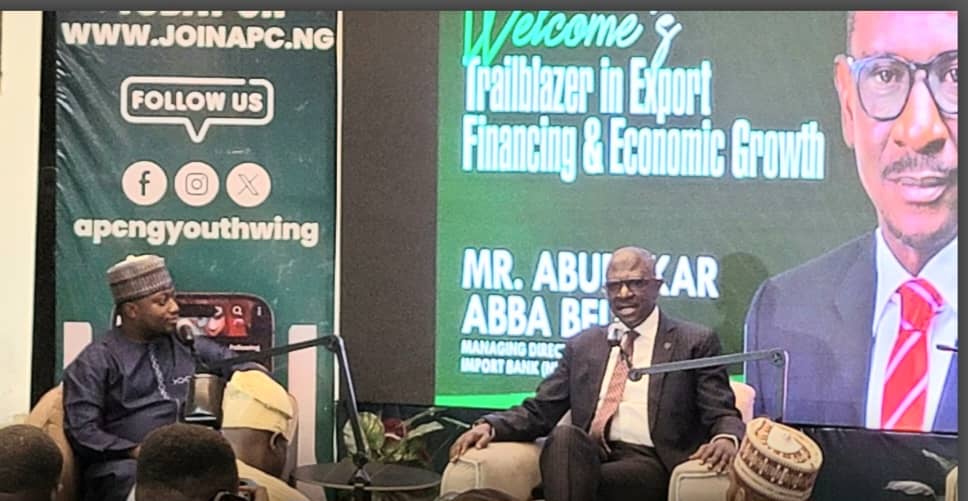In a promising development for Nigeria’s economy, the private sector exhibited signs of renewed vigor in August 2025, as the Stanbic IBTC Purchasing Managers’ Index (PMI) recorded a four-month high of 50.2. This marks a significant improvement from July’s PMI of 49.2, signaling a return to expansion in private sector activity after months of stagnation. The PMI, a key indicator of economic health, reflects the performance of Nigeria’s private sector, encompassing manufacturing, services, construction, and retail. A reading above 50 indicates expansion, while a score below 50 suggests contraction. The August figure, though modest, is a beacon of hope for an economy grappling with structural challenges, inflationary pressures, and global uncertainties.
This article delves into the factors driving this uptick in private sector activity, examines the broader economic context, and explores the implications for Nigeria’s economic trajectory. It also considers the challenges that remain and the steps needed to sustain and amplify this positive momentum.
Understanding the PMI and Its Significance
The Purchasing Managers’ Index, compiled by Stanbic IBTC in collaboration with S&P Global, is a widely respected economic indicator that gauges the health of the private sector by surveying purchasing managers across various industries. Respondents provide insights into key metrics such as output, new orders, employment, and prices, which are then aggregated into a single index. A PMI score above 50 indicates growth in business activity, while a score below 50 points to contraction. The August 2025 PMI reading of 50.2, though just above the neutral threshold, is a critical milestone, as it marks the first expansion in private sector activity since April 2025.
The PMI’s significance lies in its ability to provide a snapshot of economic trends before official data, such as GDP figures, are released. For Nigeria, a country heavily reliant on oil exports but striving to diversify its economy, the PMI offers valuable insights into the non-oil private sector’s performance. The slight increase from 49.2 in July to 50.2 in August suggests that businesses are beginning to overcome some of the headwinds that have constrained growth in recent months.
Factors Driving the August PMI Uptick
Several factors contributed to the improvement in Nigeria’s private sector activity in August. According to the Stanbic IBTC report, the uptick was primarily driven by a modest increase in new orders, which encouraged firms to ramp up production. This rise in demand, though not robust, reflects growing consumer confidence and a gradual stabilization of market conditions. Businesses reported a slight increase in output across key sectors, particularly in manufacturing and services, which form the backbone of Nigeria’s non-oil economy.
One of the key drivers of this improvement was the easing of inflationary pressures, which had previously stifled consumer spending and business investment. Nigeria has faced significant inflationary challenges in recent years, driven by a combination of factors, including naira depreciation, rising energy costs, and supply chain disruptions. However, in August, input price inflation slowed to its lowest level in four months, providing businesses with some breathing room. This moderation in input costs allowed firms to stabilize their operations and invest in expanding output.
Another contributing factor was the slight improvement in business confidence. The PMI report noted that firms were more optimistic about future prospects, with many expecting demand to strengthen in the coming months. This optimism prompted some companies to increase staffing levels, marking the first rise in employment since May 2025. While the increase in hiring was modest, it signals a cautious return to growth-oriented strategies among businesses.
The agricultural sector also played a role in bolstering private sector activity. August falls within Nigeria’s main agricultural season, and improved weather conditions compared to previous months supported higher output in agribusinesses. This, in turn, had a positive spillover effect on related industries, such as food processing and logistics.
Sectoral Performance: A Mixed Picture
While the overall PMI reading was positive, the performance across sectors was uneven. The manufacturing sector, a critical component of Nigeria’s diversification efforts, showed signs of recovery, with increased production and new orders. This was particularly evident in industries such as food and beverage processing, where demand remained relatively resilient despite economic challenges. The services sector, which includes financial services, hospitality, and telecommunications, also contributed to the PMI’s upward movement, driven by a pickup in consumer-facing activities.
However, the construction and retail sectors lagged behind, reflecting ongoing challenges such as high borrowing costs and weak consumer purchasing power. Construction, in particular, has been hampered by rising costs of building materials, many of which are imported, and delays in government infrastructure projects. Retail, meanwhile, continues to grapple with the effects of inflation, which has eroded consumers’ disposable income.
The uneven performance across sectors underscores the fragility of Nigeria’s economic recovery. While the PMI’s return to expansionary territory is encouraging, sustained growth will require addressing structural bottlenecks that continue to constrain certain industries.
Economic Context: Navigating a Complex Landscape
The August PMI reading must be viewed within the broader context of Nigeria’s economic challenges and opportunities. The country, Africa’s largest economy by nominal GDP, has faced significant headwinds in recent years, including volatile oil prices, foreign exchange shortages, and insecurity in key agricultural regions. These challenges have been compounded by global uncertainties, such as rising interest rates in advanced economies and geopolitical tensions, which have disrupted trade and investment flows.
One of the most pressing issues facing Nigeria is inflation, which has remained in double digits for much of the past two years. The naira’s depreciation against major currencies has driven up the cost of imported goods, including raw materials and machinery, which many businesses rely on. This has squeezed profit margins and forced firms to pass on higher costs to consumers, further dampening demand.
In response to these challenges, the Central Bank of Nigeria (CBN) has implemented a series of monetary policy measures, including interest rate hikes and efforts to stabilize the foreign exchange market. While these measures have had mixed results, the slight easing of inflationary pressures in August suggests that they may be starting to yield positive outcomes. The CBN’s decision to float the naira in 2023, while controversial, has also helped improve access to foreign exchange for some businesses, enabling them to import critical inputs and sustain operations.
Government policies aimed at supporting the private sector have also played a role. Initiatives such as the Nigeria Economic Sustainability Plan and investments in infrastructure, such as roads and power, have sought to create a more conducive environment for businesses. However, the implementation of these policies has been inconsistent, and many businesses continue to face challenges such as unreliable electricity supply and bureaucratic red tape.
The Role of Consumer Confidence
Consumer confidence is a critical driver of private sector activity, as it influences demand for goods and services. In Nigeria, consumer spending has been under pressure due to high inflation and unemployment, which have eroded purchasing power. However, the August PMI report suggests that consumer confidence may be starting to recover, albeit slowly. The increase in new orders, particularly in consumer-facing industries, indicates that households are beginning to spend more, possibly due to stabilizing prices and improved income prospects.
This recovery in consumer confidence is fragile, however, and will depend on sustained improvements in economic conditions. For instance, the government’s efforts to address food inflation, which accounts for a significant portion of Nigeria’s consumer price index, will be critical. Programs to boost agricultural productivity, such as the Anchor Borrowers’ Programme, have shown promise but need to be scaled up to have a meaningful impact.
Employment Trends: A Glimmer of Hope
One of the most encouraging aspects of the August PMI report is the slight increase in employment. After months of stagnation, firms began hiring again, driven by the need to meet rising demand. This is a positive development for Nigeria, where unemployment and underemployment remain significant challenges. According to the National Bureau of Statistics, Nigeria’s unemployment rate stood at 33.3% in 2024, with youth unemployment being particularly acute.
The increase in employment, though modest, could have a multiplier effect on the economy. As more people gain jobs, household incomes will rise, boosting consumer spending and further stimulating demand. However, sustaining this trend will require continued investment in job-creating sectors such as manufacturing, agriculture, and technology. The government’s focus on promoting small and medium-sized enterprises (SMEs), which are major employers, will also be crucial.
Challenges to Sustained Growth
Despite the positive PMI reading, Nigeria’s private sector faces several challenges that could undermine the recovery. One of the most significant is the persistent issue of energy costs. Nigeria’s unreliable electricity supply forces many businesses to rely on expensive diesel generators, which eat into profits and limit scalability. While the government has made efforts to improve power generation and distribution, progress has been slow, and many businesses continue to struggle with high operating costs.
Another challenge is access to finance. High interest rates and stringent lending conditions have made it difficult for businesses, particularly SMEs, to access the capital needed for expansion. The CBN’s interventions, such as the SME Credit Guarantee Scheme, have helped to some extent, but more needs to be done to ensure that credit flows to productive sectors of the economy.
Insecurity also remains a major concern. Insurgent activities in the northern parts of the country and banditry in the northwest have disrupted agricultural production and supply chains, affecting industries such as food processing and logistics. Addressing these security challenges will be critical to sustaining private sector growth.
Regional and Global Implications
Nigeria’s private sector recovery has implications not only for the domestic economy but also for the broader West African region. As the economic powerhouse of the Economic Community of West African States (ECOWAS), Nigeria’s performance influences trade and investment flows across the region. A stronger private sector in Nigeria could boost intra-African trade under the African Continental Free Trade Area (AfCFTA), creating opportunities for businesses to access new markets.
Globally, Nigeria’s recovery could attract renewed interest from foreign investors, who have been cautious due to the country’s economic challenges. The slight improvement in the PMI, coupled with stabilizing macroeconomic indicators, could signal to investors that Nigeria is on the path to recovery. However, attracting significant foreign direct investment (FDI) will require addressing structural issues such as ease of doing business and regulatory transparency.
Policy Recommendations for Sustained Growth
To build on the positive momentum reflected in the August PMI, policymakers must prioritize measures to support the private sector. First, addressing energy challenges should be a top priority. Investments in renewable energy, such as solar and wind, could provide a sustainable solution to Nigeria’s power woes while reducing reliance on fossil fuels.
Second, the government should deepen efforts to improve access to finance for businesses. This could include expanding credit guarantee schemes, reducing interest rates for priority sectors, and promoting financial inclusion for SMEs. The CBN could also explore innovative financing models, such as venture capital and crowdfunding, to support startups and technology-driven businesses.
Third, addressing insecurity is critical. The government must strengthen security measures to protect agricultural and industrial activities, particularly in the northern regions. This could involve increased investment in community policing and collaboration with regional governments to address the root causes of insecurity.
Finally, enhancing consumer confidence through targeted interventions, such as subsidies for essential goods and job creation programs, will be key to sustaining demand. The government could also explore tax incentives for businesses that invest in job-creating sectors, further stimulating economic activity.
Looking Ahead: A Cautious Optimism
The August PMI reading of 50.2 is a welcome sign of recovery for Nigeria’s private sector, but it is only the beginning. Sustaining this growth will require concerted efforts from both the public and private sectors to address structural challenges and capitalize on emerging opportunities. The modest increase in new orders, output, and employment suggests that businesses are adapting to a challenging environment, but the recovery remains fragile.
For Nigeria to achieve sustained economic growth, it must continue to diversify its economy away from oil and invest in sectors with high growth potential, such as technology, agriculture, and manufacturing. The government’s role in creating an enabling environment—through stable macroeconomic policies, infrastructure development, and security improvements—cannot be overstated.
As Nigeria navigates a complex global and domestic economic landscape, the August PMI reading offers a glimmer of hope. If policymakers and businesses can build on this momentum, Nigeria’s private sector could play a pivotal role in driving the country toward a more prosperous and inclusive future.






